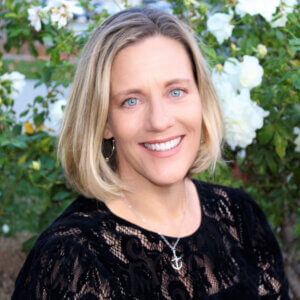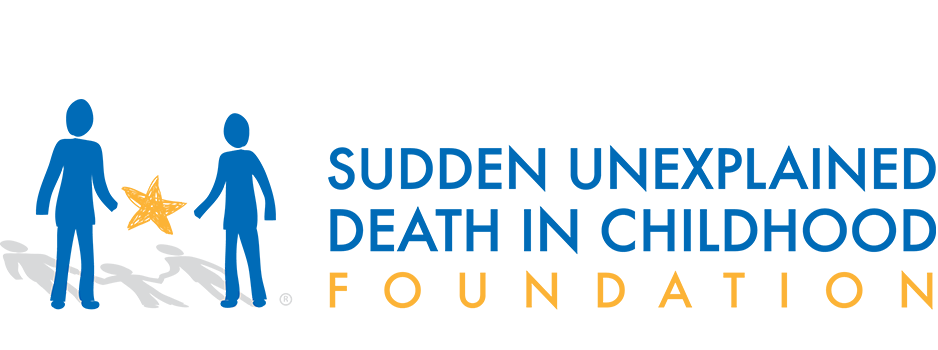09 Sep 20 Years of the SUDC Foundation: Catching Up with Chelsea Hilbert, LCSW

20 years ago this month, Chelsea Hilbert, LCSW, helped found the SUDC Program – the precursor to the SUDC Foundation – alongside former president Laura Gould. We recently sat down with Chelsea to gather her reflections on the last 20 years, and to find out what she hopes is in store for the SUDC Foundation going forward.
Q: What drove you to found the SUDC Program in 2001?
A: On January 2, 2000, our completely healthy, active son, Zachary, died suddenly and unexpectedly in his sleep. He was our only child and we were living in North Carolina far from family. We had moved there for a 1-2 year position for my husband, and I had taken time away from my career as a medical social worker to be home with my son.
Of course we were devastated and desperately seeking answers. The internet was a fledging development at the time, and I spent hours researching, calling, and trying to connect with anyone who may have experienced a similar situation or have more information. Our medical examiner investigator had stated that he had experienced one other such circumstance, and in desperation I reached out to ask if he could connect me with this family.
After several months, he was able to share the contact. During that time, I had found an online email support group led by a mother in Europe and connected with a few other families from around the world who had had children die over unknown circumstances over the age of 1. It was through this group that I met Laura Gould, and we began to collaborate on the idea of starting “something” to support families in the United States. She introduced me to Dr. Henry Krous, who was kind and passionate about his SIDS research, along with some other colleagues in the field of pathology, and he became intrigued by the stories that Laura had shared with him over the past few years.
Through all of this, l was introduced to a small number of committed researchers from various medical disciplines who “believed” my story and wanted to help.
In 2001, after almost a year of searching for resources, information and support services, we met in Laura’s parents’ home in South Carolina and began to develop the idea for the SUDC Program. We wanted to present it to a national organization who supported SIDS families that also had taken interest in our families for a possible grant proposal.
Q: What was your initial vision for the SUDC Program?
A: Initially, our vision included family support, advocacy, and engaging medical professionals in research efforts and data comparison. I would support newly bereaved families with an initial phone call and monthly followup, and monitor an online chat and peer support group. Laura would pursue research and advocacy efforts. Our desire was for families to know they were not alone; for medical doctors and medical examiners to be aware of the issue; and to make a difference in the lengthy protocols and practices in postmortem exams. Also, Dr. Krous had agreed to support our member families by giving a “second opinion” on their child’s possible cause of death.
Q: Do you feel like you accomplished what you set out to do?
A: We could have never known what was in store for the SUDC Program, and I continue to be in awe of all that has been accomplished. I often say, “Never underestimate the power of a few bereaved parents.”
Within a year we could not believe the amount of families that we had met. There were fundraising efforts, hours of phone conversations, thousands of emails and online chats, and a momentum we could have never imagined in the medical and research community. It was overwhelming and affirming.
Q: When you look back at the last 20 years, what are you most proud of in relation to the SUDC Program/Foundation?
A: It truly is hard to decide what one thing I am most proud of, but I would say that because of all the advocacy and research and countless partners and fundraising efforts, no family has to grieve this horrific loss alone. SUDC no longer gets the “What’s that?” response. A very close second was when the Program became a Foundation after heroic commitment and efforts from each of our co-founders and many others.
Q: What do you hope is in store for the SUDC Foundation over the next 20 years?
A: I am so proud of all that has been accomplished and look forward to seeing a world free of SUDC deaths. No family should have to outlive a child and especially when there is no explanation for what has happened. There is so much more to do to educate, advocate, and resource families and professionals. Through efforts and collaboration, there will continue to be scientific breakthroughs, and best practice implications for medical examiners, physicians and anyone caring for children.
Q: What is your current involvement with the SUDC community?
A: Initially I was driven by our mission and needed a space to grieve, heal and make a difference to honor my son. However, as we had more children (we currently have three: Jackson, 20, Genevieve, 19, and Victoria, 12), I was drawn to local outreach efforts that my family could be involved with on a regular basis. I continue to work with trauma and grief as a private practice clinician and as a chaplain with our local church. Because of the influence SUDC had on me regarding advocacy and legislation for families who had children die en utero up to 18, I regularly step into the lives of families experiencing the sudden and unexpected death of a child.


